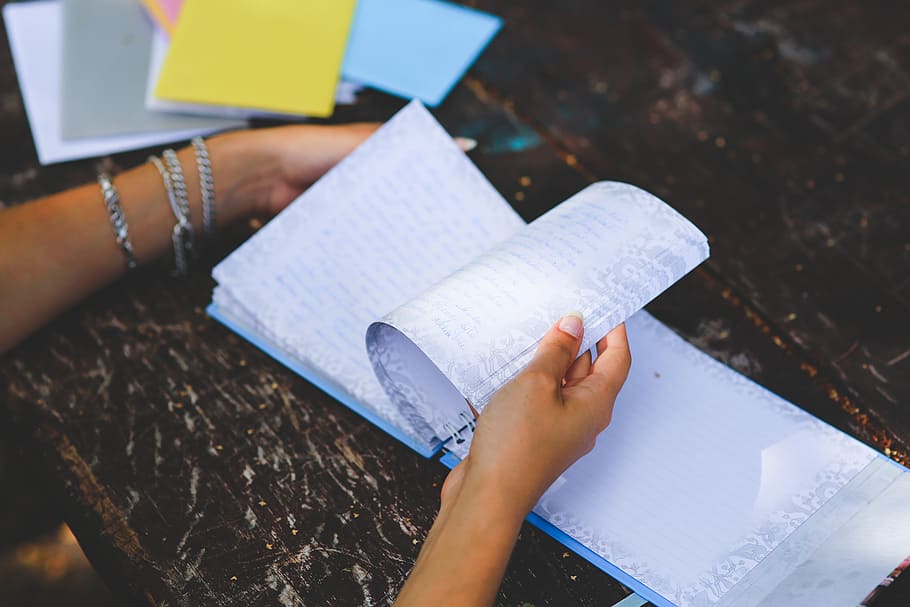One of the important skills for massive speedreading is reading diary maintenance. The subject sounds a bit dull, but it is more important and more complex than it appears. Occasionally I write articles about various kinds of reading diaries. Here I want to focus on getting the best return on the time invested maintaining such diaries.
Spaced repetition
The basic idea usually associated with reading diary is long-term memorization. We record the main ideas as we want (Anki, blog entry, document or spreadsheet). Then we review the notes using some simple formula.
Here is a possible formula. First, we review our notes soon after making them and edit. The main idea is verifying that all the relevant information was captured. Then we review the next day for long-term retention. After a week we review a collection of notes for that week. Once a month we review everything we need to remember. Quite possibly we will get questions and will need some sort of research. If after a month we remember the notes, we start to review them once a year to see they still apply.
On average we need to see the notes 6 times to remember them for a long time. Reviewing something many times is uncomfortable. It is a good idea to keep such diaries for medicine, law, history, languages, and even then only for chosen subjects. Honestly, I used this a lot during my first degree, but not since.
Bibliography
If all we want is the ability to return to the document we need, it is sufficient to record down the key indicators. These indicators include its location, the relevant keywords (markers), and the date of reading. Then we can always get to the document via keyword search of our diaries. Personally, I think that a spreadsheet is the best format for such a diary. This kind of record is the most effective diary to use. I use such a diary for running this blog.
With such a diary, the recording is easy and we do not need to review it many times. However, the entire article needs to be reread once we need to use it. Usually, if we put a dozen of keywords it is very hard to understand the meaning and if we do not use spaced repetition we will not remember the article.
While used for search, such a form of diary does not correspond to the bibliography format required in academic publications. So you may keep an additional list of citations in “proper” format.
Summary
When I need to learn a new subject I do not really understand, and the information is distributed over many resources, I create a summary of all the information needed. The format of such a summary is “heavily plagiarized books”. The idea is dividing the book into chapters by kind of information contained. Then we copy into selected chapters the relevant paragraphs of what we read.
Once the book is complete, it appears to be awful. We need to edit it into some common and readable style. If there are not more than 5% from the book from a single source, and we edited most of the text, we feel ownership over the product. Ownership over the book is correlated with ownership of the knowledge within.
Next, I read the book, and ask questions, which result in a bigger book. For me, usually, a 700 (A4) pages book summarizes a substantial subject.
The total investment in such a book (in my case) is a couple of hundreds of hours. Such an effort is reasonable for learning something big and new. I have done this several times in the past, typically with psychology, economy, alternative treatment techniques.
Since we create the document actively, and edit almost everything within, and the process takes at least a month, memorization is pretty much guaranteed.
Search report
Occasionally we need to come up with something new. When reading for some research or patent or competitive overview, we need to verify the coverage of the subject. So we focus on the search we performed: what keywords we used, how many times, and which innovative results each search provided. This means that for every data source that is relevant we summarize only what makes it special.
Quite often this means maintaining several documents: the search diary, the pros, and cons of each meaningful finding, the summary report that groups the results according to the approaches chosen by their authors.
This is a very useful format for business and technology projects, and I need to do this at work every now and then. Memorization is not the focus of this approach. We remember something but do not really concern ourselves with that, focusing almost entirely on analysis.
Creative ideas
In programming, arts, and some other highly creative activities, we are constantly looking for new ideas. We record the source of our ideas for future analysis, but the searchable data is built from our associations. Basically, as we read and stumble upon some pretty crazy stuff, we get unique associations and questions. We do not need to follow them, but it makes sense to record the thought.
Typically I record the keywords of such ideas in some form of a mathematical formula or flow, like “pleasure+purpose=happiness” or “information->knowledge->wisdom”. Quite often the idea is built from a strange combination of reading from various sources, or a TV show, or lucid dreaming (if I wake up before the dream is over). These creative ideas are often followed by questions of usage: where can the idea be used in my life?
Here the focus in on minimalism. I do not know about you, but I either do not have ideas at all or have a number of ideas in rapid succession. There is a need to free up from one idea to generate another and then move on. Clearly, when the creative burst is over, I return to the ideas and write them as tasks in Asana or Jira.
Sometimes immediately after a conversation or a meeting, I write down minimalistic notes. Then after several hours of rumination, in a more comfortable place, write detailed documents.
This article is a bridge between two of our courses speedreading masterclass-1 and speedreading masterclass. Avail these two courses with special discounts. You don’t need to pay the full price. Simply reach out to [email protected] and request a significant discount. Your satisfaction is assured. We recommend learning speedwriting as soon as you made some progress with speedreading.

Get 4 Free Sample Chapters of the Key To Study Book
Get access to advanced training, and a selection of free apps to train your reading speed and visual memory

